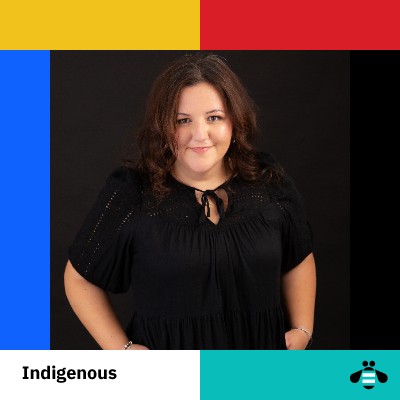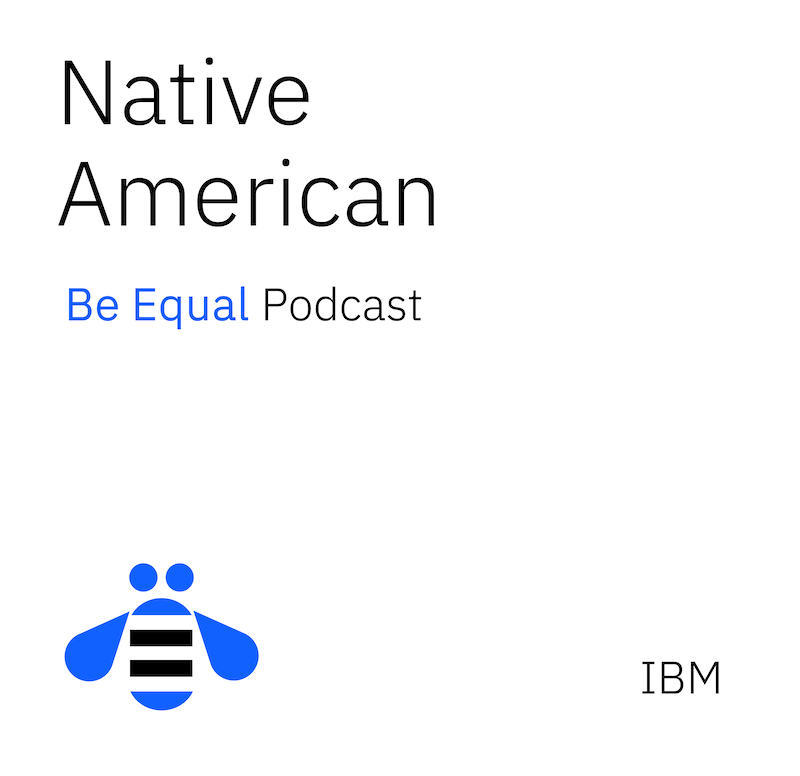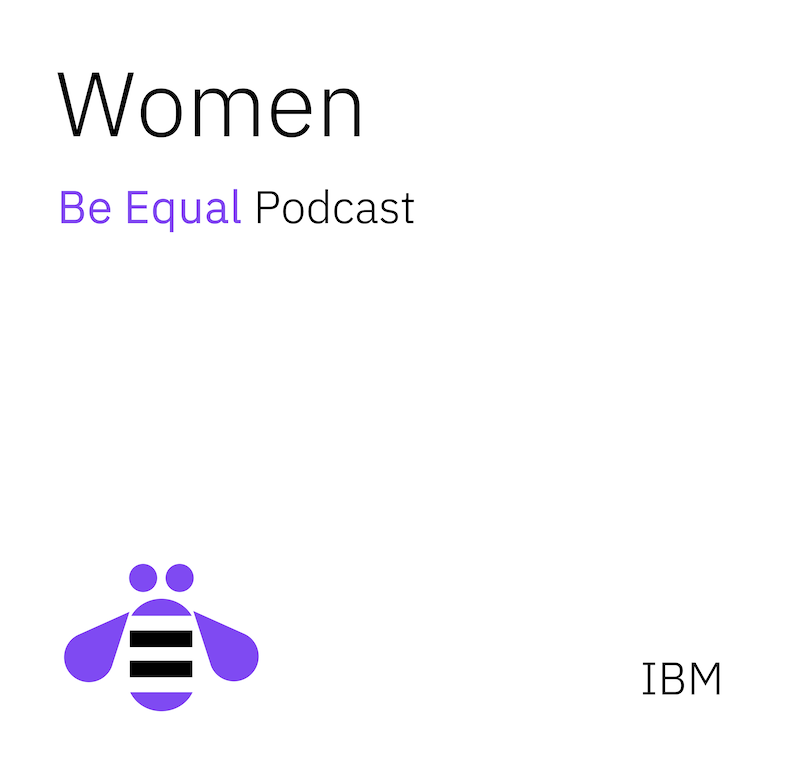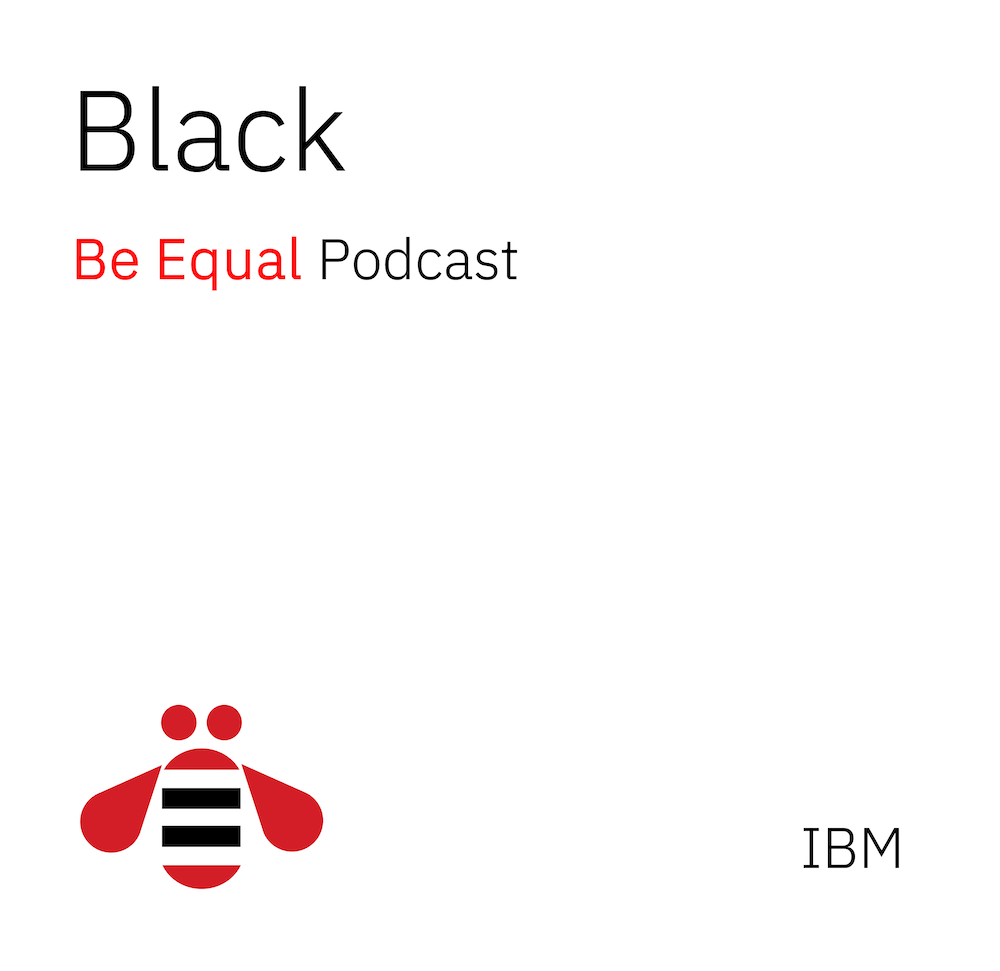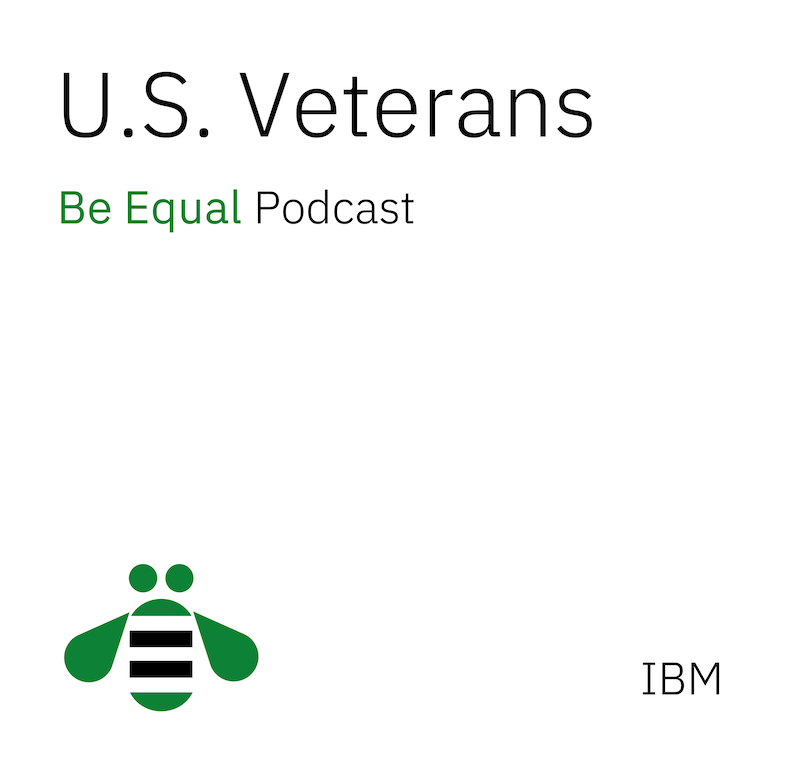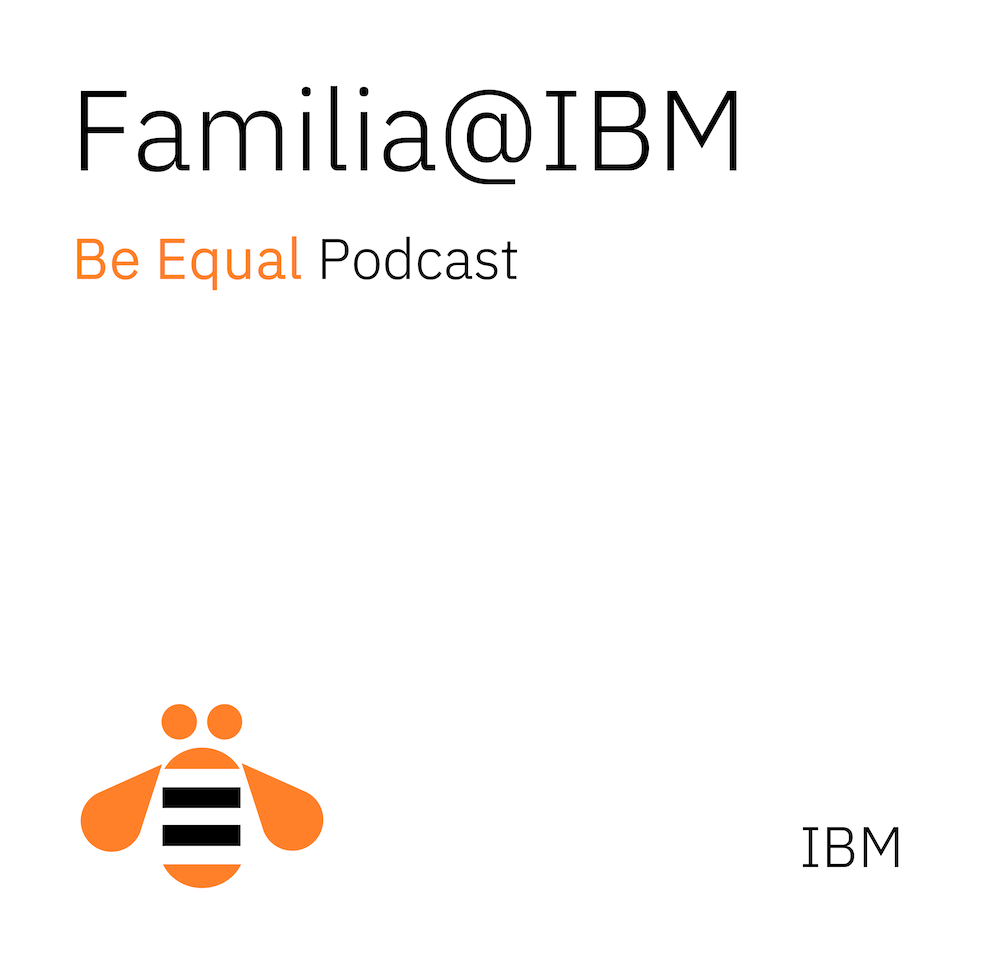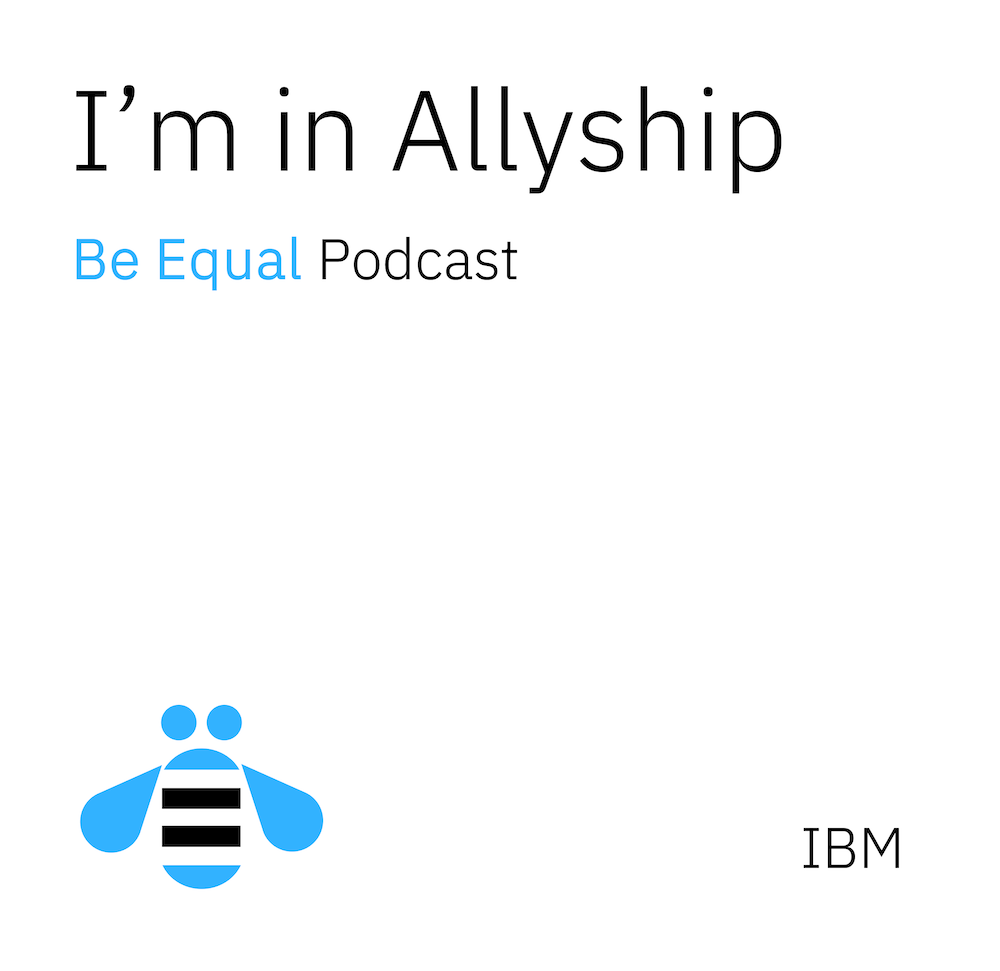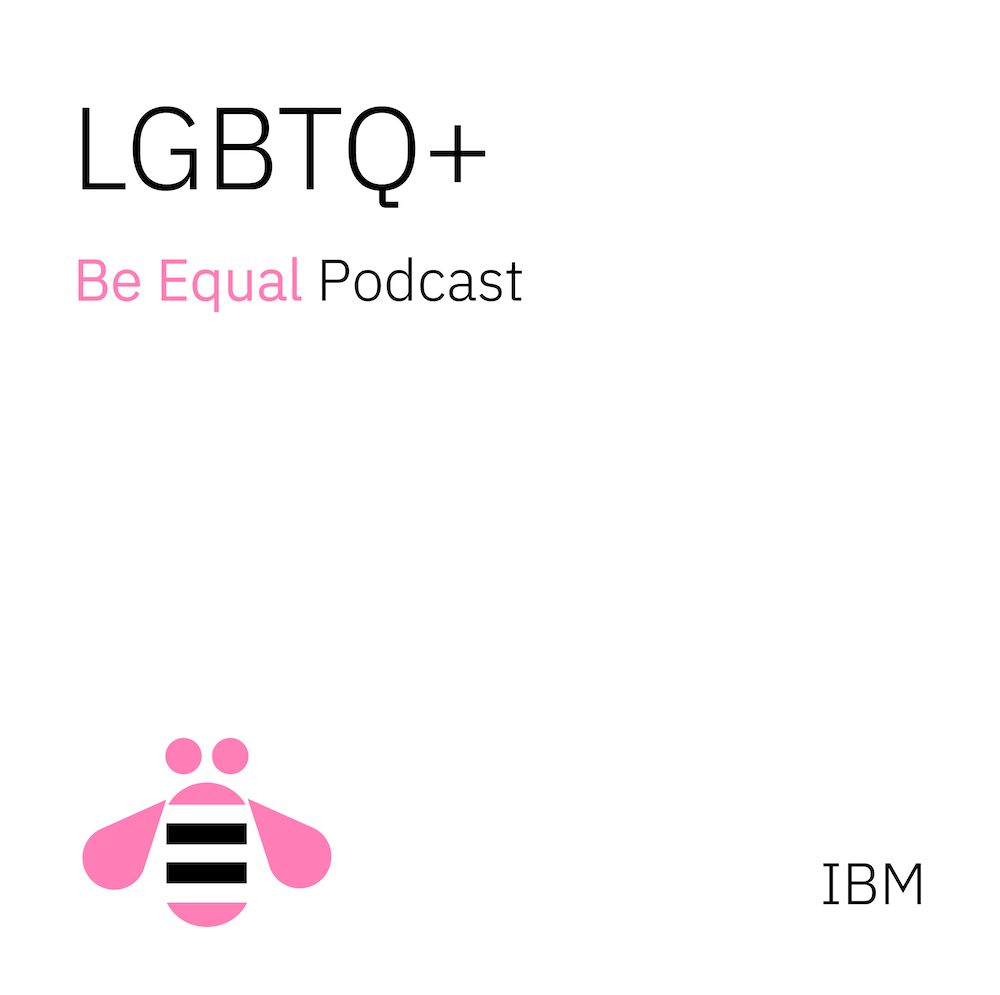Native American Heritage Month – We are here, but not alone
- 0.5
- 1
- 1.25
- 1.5
- 1.75
- 2
Jill Stewart: Hello and welcome to our IBM Be Equal Podcast. I'm Jill Stewart, the Director of Diversity and Inclusion at IBM. Thanks for joining our conversation around D&I to learn how we, at IBM, are continuously looking for ways to expand equality and allyship across the enterprise. We have eight D&I communities focused on making a difference for underrepresented groups, and here is an opportunity for you to hear directly from our IBMers. Every month we have a new episode. So, enjoy.
Joy Dettorre: Hello and welcome to our Native American and Indigenous People's Be Equal Podcast, where IBMers will have the opportunity to be vocal, be powerful, be proud, and be heard. And, of course, share their stories where we break down barriers of bias, educate to eliminate misconceptions, create pathways to being catalysts of positive change, and invite our listeners to join us on our journeys to becoming better allies. Our podcast series explores seemingly simple issues we all face, but don't often talk about out loud. And today's conversation is especially powerful for me because I have learned and continue to learn how my language impacts the life experiences of others. Let me give you a few examples. Have you ever heard, or possibly used, one of the following phrases, " Well, I'm just the low man on the totem pole." Or how about this one, " Why don't we come together in a circle and sit Indian style?" Or, " Do you know the problem with getting anything done around here? It's probably because there are just too many chiefs and not enough Indians." How about this one, " I'm going to step away, but why don't you just hold down the fort?" Or, " Let's circle the wagons." And finally, " We should get together and have a powwow." Now, if none of those phrases were offensive to you or even made you wince, then please stay tuned. You are in the right place for a teachable moment today. I am your host, Joy Dettorre, and I'm the Global Diversity, Equity and Inclusion Leader at IBM. My pronouns are she and her, and I'm speaking to you today live, from South Florida, which is also known as the ancestral lands of the Miccosukee and Seminole Nations. Our respected panelists today are Starrlee DeGrace, Courtney Duckett, and Kevin Reigner. So let's get started with a few introductions so our listeners can become familiar with your name, your life experience, and of course, your voice. So Starrlee, Courtney and Kevin, because we want all of our audience members to get to know you just a little bit better, why don't you share the following four things with us. First, let's start with a land acknowledgement. Where are you located today for our conversation? Second, why don't you share more about your tribal nation? Third, can you share a little bit about your heritage? And, of course, lastly, everyone wants to know about your role at IBM. All right, so Starrlee, how about if we start with you?
Starrlee DeGrace: Thank you so much joy, and first of all, thank you so much for having us today. Starrlee DeGrace, I am a member of the Chippewa of Georgina Island First Nation, and that is in Ontario, Canada. I speak to you today from the traditional and unceded territory of the Haudenosaunee, the Huron- Wendat, the Anishnabeg, Seneca, Chippewa, and the current treaty holders of the Mississaugas of the Credit peoples. I also am part of the Otter Clan, which is something that I hold really near and dear to my heart. My mother and father both have indigenous heritage, some of that which I did not know until I was an adult, and so I'm excited to tap into that and share a little bit more throughout this podcast. And at IBM, and as you alluded to, Joy, I am the D&I Leader of the native and indigenous communities. I've been with IBM for almost 18 years.
Joy Dettorre: Wow, great to have you with us, Starrlee. So from there, Kevin, why don't we go over to you?
Kevin Reigner: Yeah, my name is Kevin Reigner, and wasépé-wunu, which translates to Standing Bear. I am from the Comanche Nation. I am from the Kwahadi Band, the Antelope Eaters. They're the westernmost band of the Comanche Nation. I am speaking to you, though, from the land of the Nara Ganson, and what I do at IBM, I work as an offering growth manager in the offering led growth team. A little bit about my name, though, like I said, it translates to Standing Bear and in my tribe you can get a native name that's usually tied to a characteristic or a story. So it varies from person to person. Like my sister's is Nami, which translates to Little Sister. So that's based on the fact that she is the younger sister. But mine, Standing Bear, comes from when I was little, when I was learning how to walk, I couldn't quite walk, so I'd fall over a lot and I'd crawl and I'd get really, really mad and I would growl like a bear, my nana said. So I would stand up, then, and I'd just growl and get angry and a lot of my family still remembers me for it and they're like, what was wrong with him at the time? But now I think it makes a pretty cool name. And something else that's interesting about that name, Standing Bear, is Standing Bear was also a member of the Ponca Tribe. There was someone in that tribe with that name and he, I believe, was the first native to get civil rights in a court back in the day. So interesting that I share a name with him, but no tribal, two different tribes, but just little fun fact about the name.
Joy Dettorre: No affiliation. When you said that there was something about a tribal name, I know everybody can't see you and you and I have had a chance to talk more than just today. Bears are pretty intimidating. They're scary characters. I want you to know there is nothing threatening, scary or intimidating. So I was hoping there was something more to Standing Bear unless there was a part of you, Kevin, we haven't met, yet.
Kevin Reigner: No, I'm six foot one, so that's tall like a bear, but I don't really think I'm scary.
Joy Dettorre: I love it. Thank you for sharing, Kevin. And Courtney, why don't we close out the introductions with you?
Courtney Duckett: Sure, absolutely. Osiyo! My name is Courtney Duckett and I'm a citizen of the Cherokee Nation of Oklahoma. The land on which I stand, Oklahoma City, is the original pre- colonization home of the Wichitas, Caddos, Apache, and Kwapa Nations, and I give honor and respect to the tribes that were the original peoples of this wonderful city that I'm fortunate enough to call my home. And I also honor the other 39 sovereign nations that share the geography here, in this wonderful state of Oklahoma, and all the other native people that call this land home. And here, at IBM, I'm a technical sales engineer for a set of technologies called AIOps, which utilizes AI to optimize and automate IT operations within IT landscapes. And I love being in this space because I love the innovation, I love all the cool things that we're able to do for our clients. And one other fact I want to say about my tribe, we're actually not native to the state of Oklahoma. The Cherokee Nation of Oklahoma actually originated in the southeastern part of present day United States of America. So think Georgia, that sort of area. And you may remember the term Trail of Tears.
Joy Dettorre: Yes.
Courtney Duckett: Which was the forced removal of tribes from the southeastern part of the United States, particularly for the Cherokee Nation as well as four other tribes, they were forced to what was called Indian Territory, but is now present day Oklahoma.
Joy Dettorre: Wow, the what a fantastic history. I am glad that, as part of the introductions, I asked all of you to not only share where you were speaking to us from, but also a little bit of that rich heritage. I think it creates a wonderful context for today's conversation. So thank you all. All right, but before we get to our first question, Starrlee, I'm going to come right back to you. You introduced yourself as the D&I leader for the Native American Indigenous Community at IBM, and in the United States, we are celebrating Native American Heritage Month in November. And while we always celebrate Native American Heritage 365 days of the year, can you share more about what makes this month special, and the theme for this month's celebration experience at IBM?
Starrlee DeGrace: Absolutely. I could not be more excited. And as you heard in the introductions, we are just a diverse community of people and so we have a year long theme. It is, we are here but not alone. And it really focuses on the fact that while we are a proud community that still exists with rich deep culture and tradition practices, we also need our allies to be part of the story. I often say that the indigenous story is not a separate story, that it is part and weaved into everyone's story and we should share that knowledge. And it is actually represented in all the events and activity that has taken place this month. We started this month with speakers representing in collaboration with the Veterans community, with Peter McDonald, Navajo code talker, this week, later this week we have Beth LaPensée who discusses how indigenous approaches game development, and we wrap up this month with River White who's hoop dancer and autism advocate.
Joy Dettorre: And Starrlee, you and Kevin have both already mentioned this importance of advocacy. So whether it was Standing Bear in another tribe who was involved in this, the civil rights and advocacy for our Native indigenous people, I love how you brought in the importance of allyship and the theme, we are here but not alone, because we all need to stand in collaboration with one another for one another. And we're going to talk a little bit about active allyship and what it means for each of you in just a moment. But Starrlee, I'm going to keep it back with you. So as the D&I leader for the Native American community at IBM, let's go back to the introductions. During the introductions, I had asked each one of you to talk a little bit about land acknowledgement, and I specifically said, " Will you tell us where you're speaking to us today?" Can you tell us two things? If I happen to be a first time listener to the Be Equal podcast and I heard somebody mention a land acknowledgement, can you tell us two things; first, what is a land acknowledgement, and second, why is it so important?
Starrlee DeGrace: Absolutely, and I love this question. I think just asking the question, Joy, is a piece of allyship, is just making that connection. And I prefer to think about it as territory acknowledgement versus land acknowledgement.
Joy Dettorre: Oh, okay.
Starrlee DeGrace: There are traditional indigenous gathering practices that honor and recognize indigenous peoples who have deep historical and significant ties to the lands that we gather on and have for many years. The territory practice, itself, is ancient cultural practice that indigenous nations across Turtle Island or North America. Is essential to demonstrating our commitment to reconciliation and reversing the forced removal, as Courtney had alluded to in the intro, a removal of indigenous people, and so we are giving a reminder to that history when we do that. And I like to just share an example really quickly to make it relevant to the listeners. If I was to come to your house, Joy, and I was to come in to your home, knock on the door, come into your house, sit on your couch, go to your fridge and drink your wine, but I wasn't invited and you had plans that evening, you might feel a little differently than if I called you and said, " Joy, I really want to come over and I'm going to bring your favorite wine and let's watch some television. Let's catch up." I know that's a really overly simplistic example, but you would feel better because I wanted to spend time with you and you gave me permission to come into your home. And so the acknowledgement really is just a moment of reflection, of understanding our history, and so that is really what is important. I will also just acknowledge that we do not want that to be performative. We do not want that to be for the sake. We really want people to understand what it means to acknowledge the land. And so I would prefer that people hold off land acknowledgement, territory acknowledgement, while they're looking and doing the research to understand the land they reside on.
Joy Dettorre: And thank you for the teachable moment for me, as well, and letting me know that it's probably better, and even more appropriate, to refer to where somebody is sitting today to honor that land as a territory acknowledgement. So Starrlee, thank you for that. I think it was a beautiful way to set the stage. So Courtney, I'm going to come over to you. Starrlee mentioned that this year's Native American Heritage month theme was, we are here but not alone, which is a perfect segue to our first set of questions. Knowing that you are not alone is an important part of empowerment, courage, and allyship. Can you share with us; how do you describe allyship and what can someone do to demonstrate active allyship for you?
Courtney Duckett: So there's a direct quote that I always refer back to during allyship conversations, and it's from a creator called Official Millennial Black, and it's quote, " An ally is someone who uses their privilege to make personal sacrifices to advocate for the rights of a marginalized group without seeking praise or reward". And I find that to be so special and I find it to be so important, especially in instances where allyship could easily be performative, something where they seek praise instead of that sacrifice to actually help marginalized individuals. And so in 2023, in our present day, allyship, to me, looks like supporting businesses that are run by marginalized group. It also looks like educating oneself on issues that marginalized groups face, and additionally, calling out microaggressions when they happen and doing their best to put a stop to it.
Joy Dettorre: Wow. Courtney, thank you so much. I've heard you and Starrlee both use the word, we don't want it to feel performative, right? And allyship is not really about the ally, don't feel like you're going to be congratulated, I think I heard, don't be congratulated if you demonstrate that you use your privilege to be an ally to someone else. It's not about you, it's about the person that you are being an ally for. So Courtney, thank you. Kevin, I am coming to you next with the same question, but Courtney mentioned the importance of advocacy, education, and I heard her say, " Taking action against microaggressions". So how do you describe allyship and what can someone do to demonstrate active allyship for you?
Kevin Reigner: Well, if I could just play Courtney's voiceover again for a second time, I would do that. I think Courtney hit the nail on the head. But to that point, I think in my own personal relationships with people who are looking to become better allies, a theme I've noticed is just a continuous growth and knowing that there's always more you'll be learning, and you're always wanting to be better. So that pursuit of wanting to become a better ally, I think, is crucial in how I define allyship and what it means to me. But I think there's a second layer here, and I've spoken about this before. It's something I like to harp on a little bit. But I think being a receptive listener and listening to hear, not listening to respond, I think, is especially important when having these conversations around what it means to be indigenous and the injustices done to our people. And because that is a bit of a touchy, sensitive subject for all parties involved, I think it's important for the agent group, or the non- marginalized group there, to monitor their defensiveness, and sit there and know that you're going to be uncomfortable, but you have to be okay with that discomfort to really move forward. I always think about, there's an analogy of wood and sandpaper and how the lower grit sandpaper is rougher. It's more uncomfortable, but it's going to make more of an impression on the wood. And so these opportunities of being uncomfortable are going to be more meaningful to that person, to the ally in the long run. And with that, I think it's important that the ally remembers not to center their feelings. And to that point about being uncomfortable, don't let your discomfort derail a conversation. It's hard for everyone, but this is how we learn, this is how we grow. And I always think of it like, I only share a lot of this stuff and my personal anecdotes with people who are close to me. And so when I'm being an ally to another community, share something personal with me, it feels like an honor and I want it to feel like that to the other person I'm speaking to. And like I said, that involves receptive, active listening, and the ally not centering their feelings in my own personal narrative or anecdote or family narratives.
Joy Dettorre: Kevin, there was so much there. First of all, being an ally is always an opportunity for demonstrating continuous growth. It's an opportunity for always wanting to be better. You mentioned the importance of someone, an ally, being a receptive listener. And the other thing that I want to anchor on was you said, " Monitor your defensiveness." In order to move forward, you may be uncomfortable. I loved your analogy of the wood and you ended this by saying, " Don't let discomfort derail your conversations." So thank you so much for the three of you helping us understand how to be a better ally. Okay, Courtney, I know tribal recognition is momentous for you, and you have a story of allyship tied to tribal rights. Do you mind sharing your remembrance of demonstrated allyship?
Courtney Duckett: So before I get into it, I need to add a lot of context so I'm going to take you all on a nice little history lesson. So in my intro, I had mentioned the five civilized tribes and their forced removal from the southeastern part of the United States. Well, a lot of people don't actually know or recognize this history, but when the United States forced the removal of the five tribes, Choctaw, Chickasaw, Cherokee, Creek, and Seminole Nations from their ancestral lands in the southeastern part of the United States on the Trail of Tears to present day Oklahoma, but was then called Indian Territory, they brought with them thousands of black people who they had enslaved. So these five slave holding tribes was what we refer to as the five civilized tribes in our textbooks. And it's important to note that Indian territory, at that time, was not actually part of the United States. So flash forward, eventually, the United States came to claim land in Indian territory. And to do that, they actually made each of these five tribes sign treaties, which would establish them as sovereign nations within the United States. And the terms of these treaties required that each of the tribes free their enslaved black people and provide tribal citizenship to all people living within their new found tribal borders, including those of the newly freed black people, which became known as freedmen. And it's important to also note that at this time of the treaties being signed, all other black people living within the United States had already been emancipated from slavery for about a decade. So I'm proud to say that I'm a Cherokee Freedman descendant, as well as a Creek Freedman descendant, and as well as a Chickasaw Freedman descendant. But this is where the history gets a little bit more interesting. So every person living within the tribal borders was recorded on what's called the Dawes Rolls. The Dawes Commission had recorded two separate roles, one of by blood Indians, and one of Freedman descendants now Freedmen, whether or not they had native ancestry, and most of them did, including myself, were recorded as Freedmen. And these Freedmen and their descendants were allowed to have access to the tribes in the fact that they had the ability to vote. But in 1983, which really wasn't even all that long ago-
Joy Dettorre: No, not at all.
Courtney Duckett: Each of these five tribes issued their own tribal constitution issuing that their citizenship requirement would be to have an ancestor that was registered on the Dawes role by blood. So with this going into effect, thousands, I mean thousands of Freedman descendants were ripped of their citizenship and disenfranchised from within our own tribes.
Joy Dettorre: Oh, wow.
Courtney Duckett: And I want to also tell our audience, a lot of us, like myself and my family, we've stayed in Oklahoma, we've lived amongst our tribal communities all this time, fighting for our right to join our tribes again. So this fight for tribal citizenship and our rights to be restored has only been successful for the Cherokee Freedmen, the Cherokee Nation of Oklahoma. And it's been a long battle.
Joy Dettorre: It has.
Courtney Duckett: There was lots of legal battles ensuing all the way up to the highest court of the land. In 2016, the United States Supreme Court ruled that the Cherokee Nation should restore the rights of the citizenship for Cherokee Freedmen descendants because of that treaty that they had signed with the government all that time ago. So to this day, the Cherokee Nation of Oklahoma is the only one of these five tribes to restore the citizenship rights of their Freedmen. And while I always support and respect tribal sovereignty, I, personally, celebrate this decision and I honor the Cherokee Nation and our Principal Chief, Chuck Hoskin, for his allyship and openness to welcoming the Cherokee Freedmen descendants into our tribe and educating other tribal citizens about our tribe's shared history; the good, the bad, and the ugly.
Joy Dettorre: Wow.
Courtney Duckett: And I saw this allyship myself over the summer. The very first time that I visited the Cherokee Reservation since gaining my tribal citizenship just a year ago, the tribe had created this really beautiful exhibit honoring our Cherokee Freedmen and their descendants. And I got to meet the Chief, and he had this wonderful speech where he showed immense allyship toward Cherokee Freedmen, our fight for tribal recognition, and his commitment to getting other tribal citizens engaged with acknowledging and celebrating our shared history. And to me, that was the ultimate example of allyship. And I'm so grateful for him, and I'm so grateful for the journey. And even most importantly, I'm so grateful to be able to reconnect with my tribe after all these years.
Joy Dettorre: Wow, Courtney, that is quite a story. I thank you for sharing it, but I also thank you for educating us. Woven in that story was the importance of that demonstrated allyship. And you can always, people always say, you can tell when somebody was smiling when they were talking, when you talked about the pride that you had about that experience, there was no doubt your entire body was smiling. Even though our listeners couldn't see it, we could absolutely feel it. So Courtney, thank you so much for not only sharing the rich history, but also the sense of pride.
Courtney Duckett: Thank you.
Joy Dettorre: And Courtney, we're actually, though, going to come right back to you for our next question. What is one misconception about the Native American community, and how has it impacted your journey?
Courtney Duckett: One misconception is that we don't exist anymore or that we've disappeared. But that's simply not true. Now, due to colonization, some of us don't phenotypically meet expectations for what Native Americans should look like, whatever that means. But that doesn't mean that our culture and traditions aren't still alive and well, because they are. And that's one thing that I want to spread awareness for, especially in the technology industry. We are in the technology industry, though we're few in number, we're mighty. And I think that it's really important to me to elevate and amplify Native American voices in technology.
Joy Dettorre: Wow, Courtney, thank you for that. All right, so Kevin, let's pivot over to you. I heard you refer to yourself as a white native, which ties nicely into this idea of misperceptions. Same question for you; what is one misperception about the Native American community and how has it impacted your journey?
Kevin Reigner: Yeah, the one I'll be highlighting actually anchors really well on Courtney's second point of race versus ethnicity. And again, because I am a white native, a lot of non- natives have immediately jumped to, you're not native, you're white. And I just want to say race doesn't really have a bearing on how native or not native someone is. Something that's really interesting about my family heritage is, on my native side, my great- great- grandfather is actually German. So the way this works, there's a book, it's called the Empire of the Summer Moon: Quanah Parker and the Rise and Fall of the Comanches, the Most Powerful Indian Tribe in American History. And in it, it details the story of a man named Rudolph Fisher, and Rudolph was German. And then at the age of nine, he was kidnapped by the Comanches when he was going out to get some stuff for his family at the general store. His family pretty much assumed that he died or didn't really know what happened. But then in 1877, when the government was taking census of the natives, specifically the Comanche tribe, they found pretty much a random white guy on the tribe. And they were like, what are you doing here? You don't belong here. And basically, the Comanche tribe had raised Rudolph as one of their own. And so the government gave him a proposition; you can either stay here and be Comanche or we can return you to your family. And he was like, the Comanches are my family. This is who I am, now. So they were like, okay. And then on the census, instead of marking him as white, they marked him as native. So the book talks a lot about it, but he is unequivocally native, and should that racial element have been taken out of the story, it wouldn't really dictate how native or not native, whatever that means, someone is or is not. Not to mention, the last Chief of my tribe, Quanah Parker, was also half white. So again, it really goes back to what Courtney said around the cultures and the customs and the practice and keeping that vibrant and alive. And that someone's skin color doesn't dictate how active or non- active they are in the participation of that culture, those customs and what it means to be native, like I said, isn't dictated, whatsoever, by the color of someone's skin.
Joy Dettorre: Wow. Outstanding. And a lesson for everyone listening. The color of my skin does not dictate how native I am or not. " Whatever that means," is what I heard Kevin say. Okay. So Starrlee, over to you. I have often heard you express frustration with the notion of tokenism and that somehow, you would've experienced some type of advantage or free ride because of your heritage. What is one misconception about the Native American community and how has it impacted your journey?
Starrlee DeGrace: When I think about tokenism, it's really interesting environment because we always think about having people consider a free ride, whether that is free education, whether the question I get asked about, do I pay taxes on my salary? Did I have this opportunity? Was it given to me? And then I asked myself those questions. Did I get this opportunity on my own merit? Am I good enough? And the self- doubt sets in. Those are things that create a culture of uncertainty and does not create a safe space. And so we want our allies going back to previous questions to continue to foster safe spaces to do that work in advance. And so when I think about that, those misconceptions, it's really important that we are not continuing to feed into those misconceptions that indigenous people did not get a free ride, that we have to work equally or harder, in some cases, to have the same opportunities, that we have systematic barriers that we have to overcome and we have to break them down.
Joy Dettorre: And Starrlee, so many, this misconception, I wasn't really sure where we were going to go with this, but all three of you said something so profound. And Starrlee, you had mentioned that with these misconceptions, it can create a narrative of self- talk that is really self- doubt self- talk, and then it can create a culture of uncertainty for an individual. Thank you for sharing that because if we don't think that words, language, and relationships have an impact on someone, imagine the damage of what Starrlee just described. So Starrlee, thank you so much for your courage and for your vulnerability and helping us understand how can we be better allies to stop that systemic experience from happening from our Native American and indigenous people. So I wanted to say thank you to the three of you. You heard it here, we just gave every ally permission to be a little wiggle in your seat uncomfortable. It may mean you are learning something new. Welcome to the Journey. So on behalf of all of our listeners, I wanted to say thank you to Courtney, Kevin and Starrlee. Thank you for teaching us something new, thank you for sharing your stories of vulnerability, and thank you for sharing your actionable and relatable takeaways.
DESCRIPTION
In November, we honor the vibrant culture, traditions, and valuable contributions of Native and Indigenous people in the United States. In this episode, IBMers Starrlee DeGrace, Courtney Duckett, and Kevin Reigner share insights into how the community celebrates Heritage Month at IBM with the theme: "We are here, but not alone". While listening to their conversation, you will discover ways to become an active ally through discussions on topics like land acknowledgement, misconceptions, and bias.
Through both individual and corporate support, IBM cultivates a profound understanding and appreciation for Native/Indigenous peoples. We are dedicated to creating an inclusive and attractive workplace for the U.S. Native and Indigenous population.
Learn more here: www.ibm.com/impact/be-equal/communities/indigenous
Today's Host
Jill Stewart
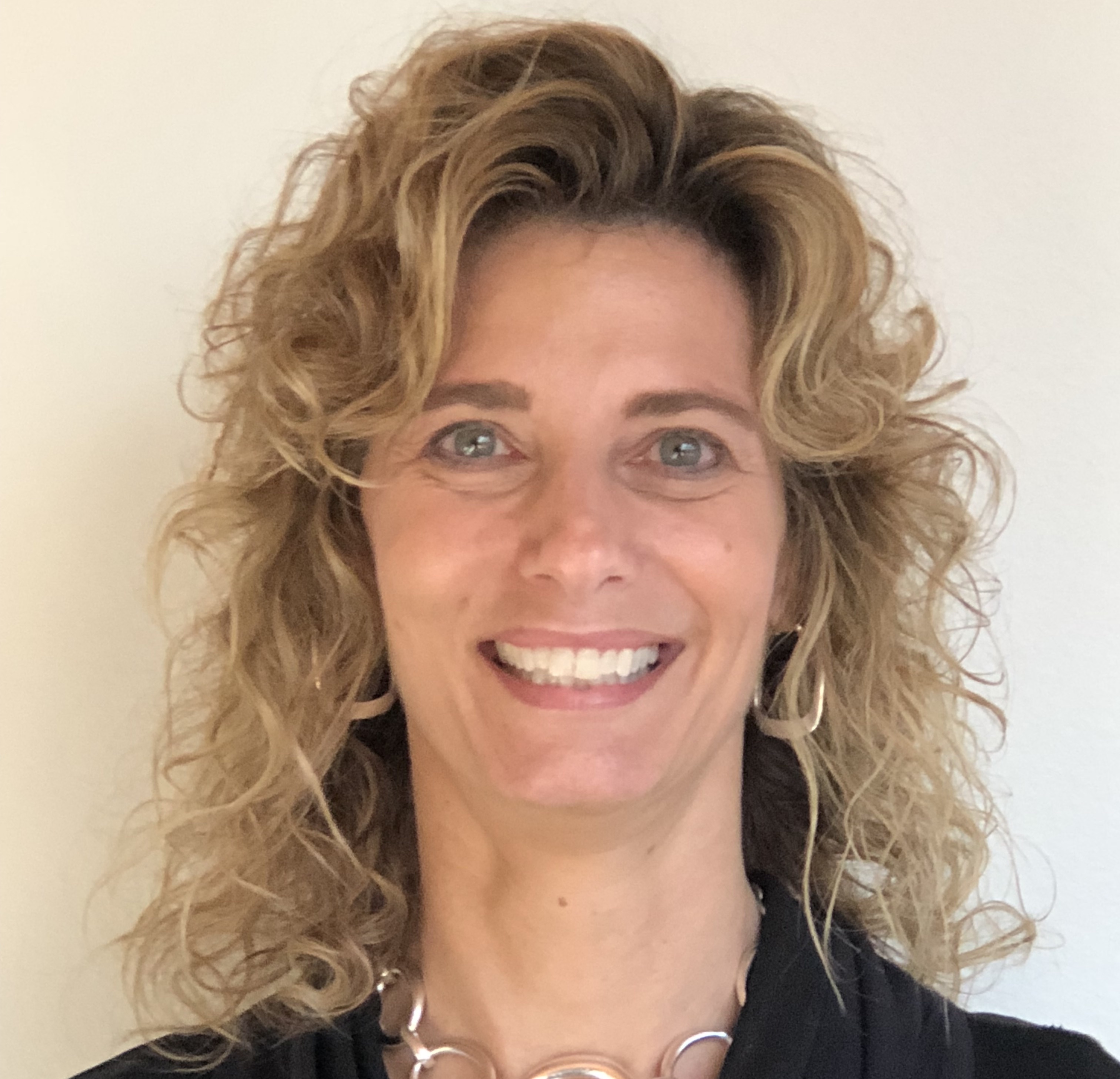
Joy Dettorre
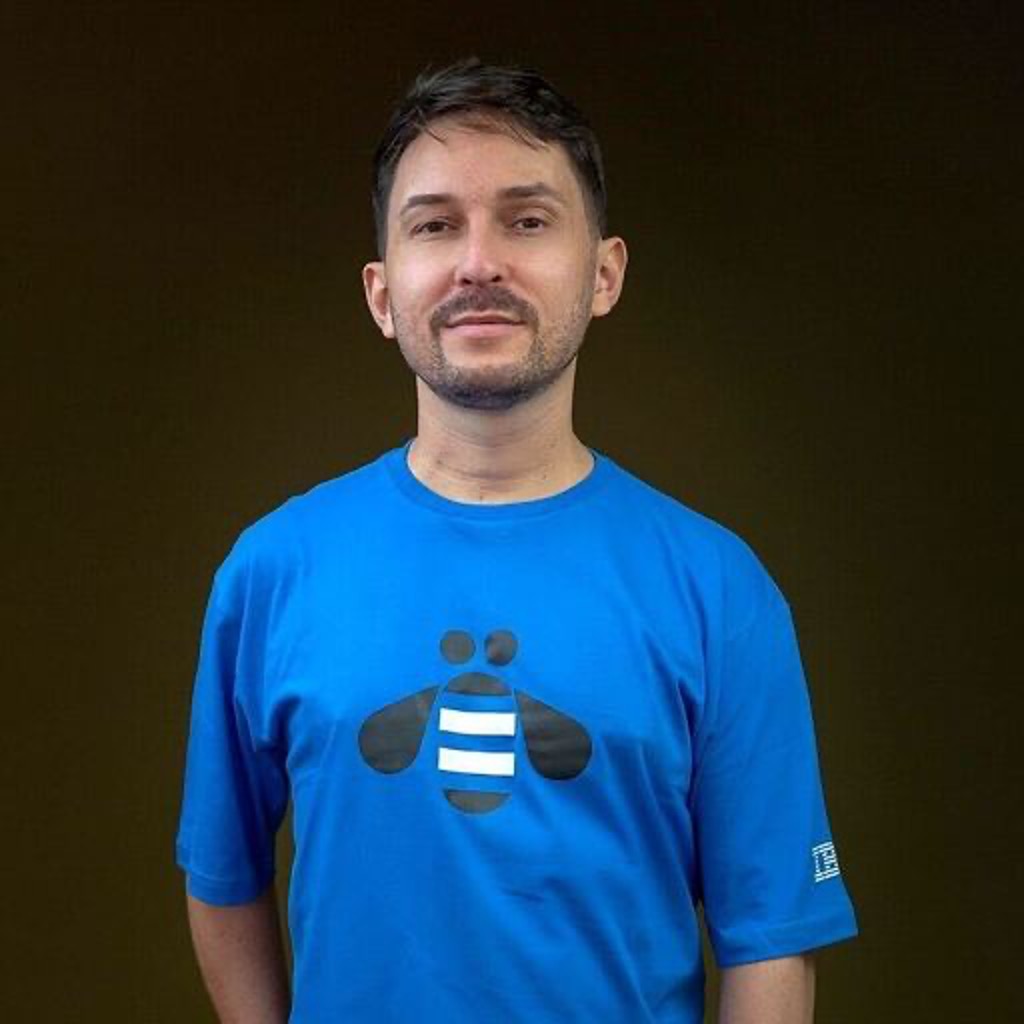
Luiz Lopes
Today's Guests
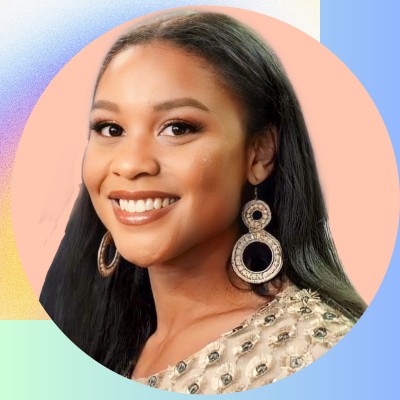
Courtney Duckett
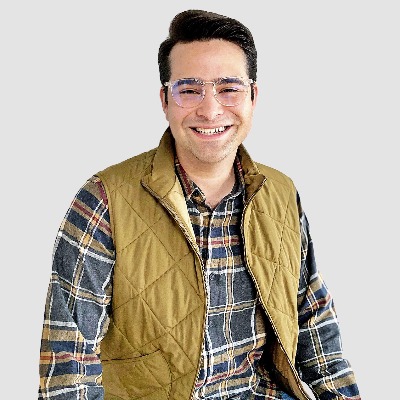
Kevin Reigner
